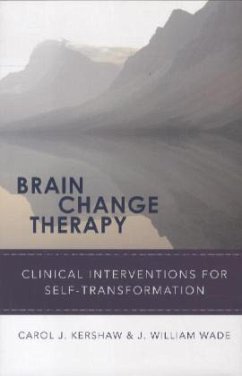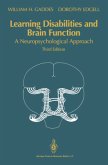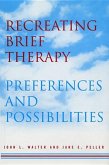When conditions like anxiety and depression are experienced chronically, they condition neural pathways and shape a person's perception of and response to life events. As these pathways are reinforced, unhealthy neural networks turn on with increasing ease in the presence of conscious and unconscious triggers. In this groundbreaking book, Kershaw and Wade present Brain Change Therapy (BCT), a therapeutic protocol in which clients learn to manage their emotions and behaviors, and thus reduce stress and control emotional reactivity. Drawing from the latest neuroscientific research as well as integrative principles from hypnosis, biofeedback, and cognitive therapy, BCT helps clients reach stable neurological and emotional states and thus shift perspectives, attitudes, beliefs, and personal narratives toward the positive. BCT starts with the working assumption that effective therapeutic change must inevitably include a repatterning of neural pathways, and employs "self-directed neuroplasticity" through the active practicing of focused attention. As an adjunct to these methods, it helps clients create new, empowering life experiences that can serve as the basis for new neural patterns. The book begins by laying the foundation for body-mind and brain-body interventions by exploring the basics of the brain: its anatomy, neuroanatomy, neurophysiology, electrochemical processes, and the rhythms of the brain and body and nature. The authors set forth a detailed protocol for neuroassessment and evaluation of new clients, with particular attention to assessing a client's habitually activated emotional circuits, neural imprints, state flexibility, level of arousal, and any relevant neurobiological conditions. The authors go on to outline BCT and its interventions geared toward stress reduction and state change, or the capacity to shift the mind from one emotional state to another and to shift the brain from one neural pattern to another. Protocols for specific presenting problems, such as fear, anxiety, and life-threatening and chronic illnesses are outlined in detail. Because of the breadth of the BCT approach, it is effective in working with individuals who are interested in shifting and conditioning peak performance states of consciousness, and the authors offer protocols for helping their clients reach peak professional performance as well. With this book, clinicians will be able to empower their clients to find their way out of a wide range of debilitating mental states.
Bitte wählen Sie Ihr Anliegen aus.
Rechnungen
Retourenschein anfordern
Bestellstatus
Storno








